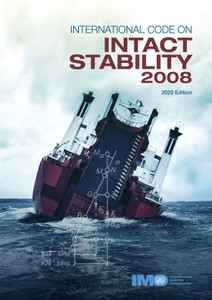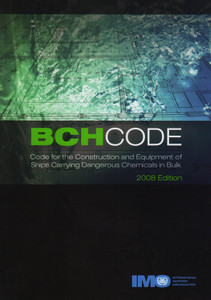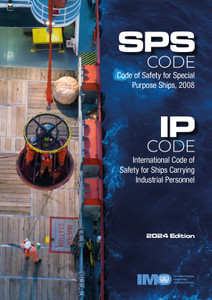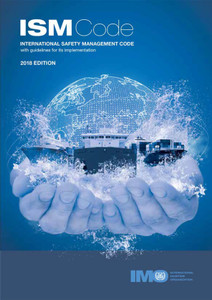
The MSC adopted a new Code of the International Standards and Recommended Practices for a Safety Investigation into a Marine Casualty or Marine Incident (Casualty Investigation Code) in May 2008. Relevant amendments to SOLAS Chapter XI-1 were also adopted, to make parts I and II of the Code mandatory from 1 January 2010. Part III of the Code contains related guidance and explanatory material.
The Code requires a marine safety investigation to be conducted into every “very serious marine casualty”, which is defined as a marine casualty involving the total loss of the ship or a death or severe damage to the environment.
The Code also recommends an investigation into other marine casualties and incidents, by the flag State of a ship involved, if it is considered likely that it would provide information that could be used to prevent future accidents.
The new regulations expand on SOLAS Regulation I/21, which requires Administrations to undertake to conduct an investigation of any casualty occurring to any of its ships "when it judges that such an investigation may assist in determining what changes in the present regulations might be desirable. (K128E).
The objective of this Code is to provide a common approach for States to adopt in the conduct of marine safety investigations into marine casualties and marine incidents. Marine safety investigations do not seek to apportion blame or determine liability. Instead a marine safety investigation, as defined in this Code, is an investigation conducted with the objective of preventing marine casualties and marine incidents in the future. The Code envisages that this aim will be achieved through States:
.1 applying consistent methodology and approach, to enable and encourage a broad ranging investigation, where necessary, in the interests of uncovering the causal factors and other safety risks; and
.2 providing reports to the Organization to enable a wide dissemination of information to assist the international marine industry to address safety issues.
A marine safety investigation should be separate from, and independent of, any other form of investigation. However, it is not the purpose of this Code to preclude any other form of investigation, including investigations for action in civil, criminal and administrative proceedings. Further, it is not the intent of the Code for a State or States conducting a marine safety investigation to refrain from fully reporting on the causal factors of a marine casualty or marine incident because blame or liability, may be inferred from the findings.
This Code recognizes that under the Organization’s instruments, each flag State has a duty to conduct an investigation into any casualty occurring to any ship flying its flag, when it judges that such an investigation may assist in determining what changes in the present regulations may be desirable, or if such a casualty has produced a major deleterious effect upon the environment. The Code also takes into account that a flag State shall cause an inquiry to be held, by or before a suitably qualified person or persons into certain marine casualties or marine incidents of navigation on the high seas. However, the Code also recognizes that where a marine casualty or marine incident occurs within the territory, including the territorial sea, of a State, that State has a right{ to investigate the cause of any such marine casualty or marine incident which might pose a risk to life or to the environment, involve the coastal State’s search and rescue authorities, or otherwise affect the coastal State.
PART I – GENERAL PROVISIONS
Chapter 1 – Purpose
Chapter 2 – Definitions
Chapter 3 – Application of chapters in Parts II and III
PART II – MANDATORY STANDARDS
Chapter 4 – Marine safety investigation Authority
Chapter 5 – Notification
Chapter 6 – Requirement to investigate very serious marine casualties
Chapter 7 – Flag State’s agreement with another substantially interested State to conduct a marine safety investigation
Chapter 8 – Powers of an investigation
Chapter 9 – Parallel investigations
Chapter 10 – Co-operation
Chapter 11 – Investigation not to be subject to external direction
Chapter 12 – Obtaining evidence from seafarers
Chapter 13 – Draft marine safety investigation reports
Chapter 14 – Marine safety investigation reports
PART III – RECOMMENDED PRACTICES
Chapter 15 – Administrative responsibilities
Chapter 16 – Principles of investigation
Chapter 17 – Investigation of marine casualties (other than very serious marine casualties) and marine incidents
Chapter 18 – Factors that should be taken into account
when seeking agreement under chapter 7 of Part II
Chapter 19 – Acts of unlawful interference
Chapter 20 – Notification to parties involved and commencement of an investigation
Chapter 21 – Co-ordinating an investigation
Chapter 22 – Collection of evidence
Chapter 23 – Confidentiality of information
Chapter 24 – Protection for witnesses and involved parties
Chapter 25 – Draft and final report
Chapter 26 – Re-opening an investigation
Resolution MSC.255(84) adopted on 16 May 2008
Corrigendum
A??s a specialized agency of the United Nations, IMO is the global standard-setting authority for the safety, security and environmental performance of international shipping. Its main role is to create a regulatory framework for the shipping industry that is fair and effective, universally adopted and universally implemented.
In other words, its role is to create a level playing field so that ship operators cannot address their financial issues by simply cutting corners and compromising on safety, security and environmental performance. This approach also encourages innovation and efficiency.
Shipping is a truly international industry, and it can only operate effectively if the regulations and standards are themselves agreed, adopted and implemented on an international basis. IMO is the forum at which this process takes place.
- Number of Pages:
- 31
- ISBN:
- 9789280114980
- Published Date:
- June 2008
- Book Height:
- 210 mm
- Book Width:
- 150 mm
- Preview:
- Yes
- Author:
- IMO
- Publication Date:
- February 2021






